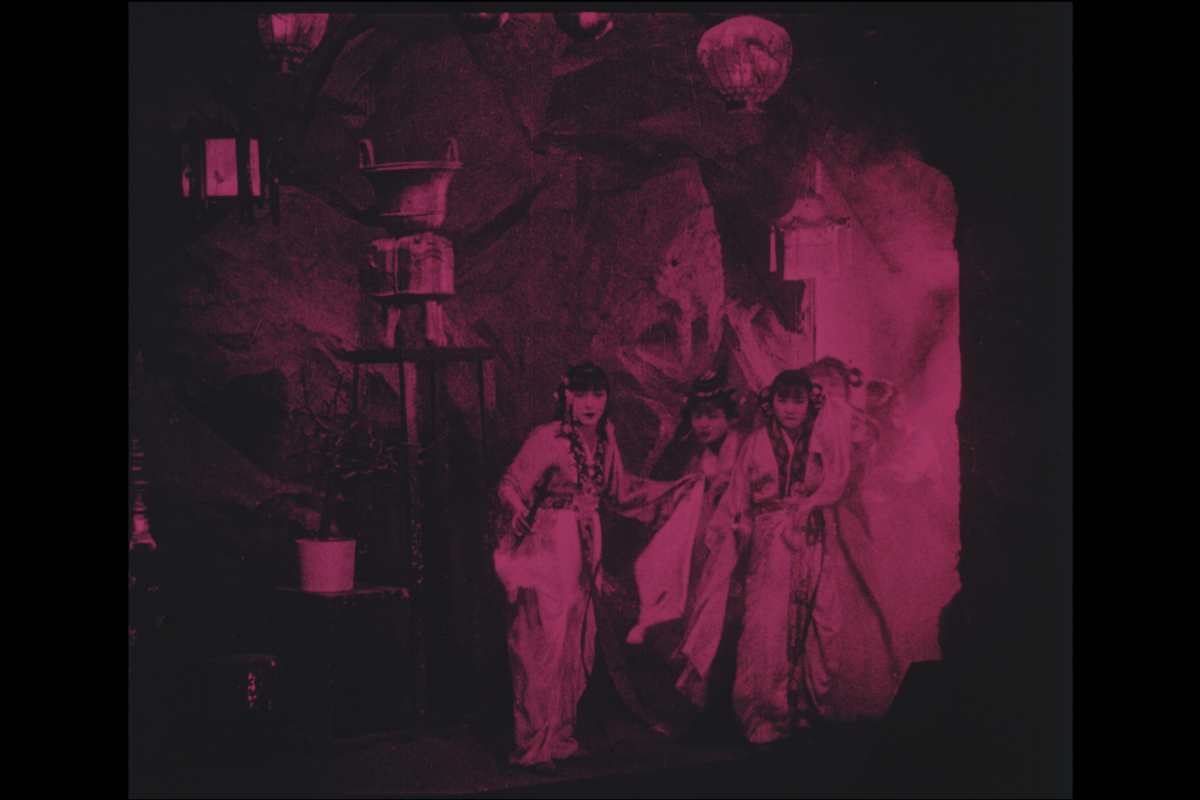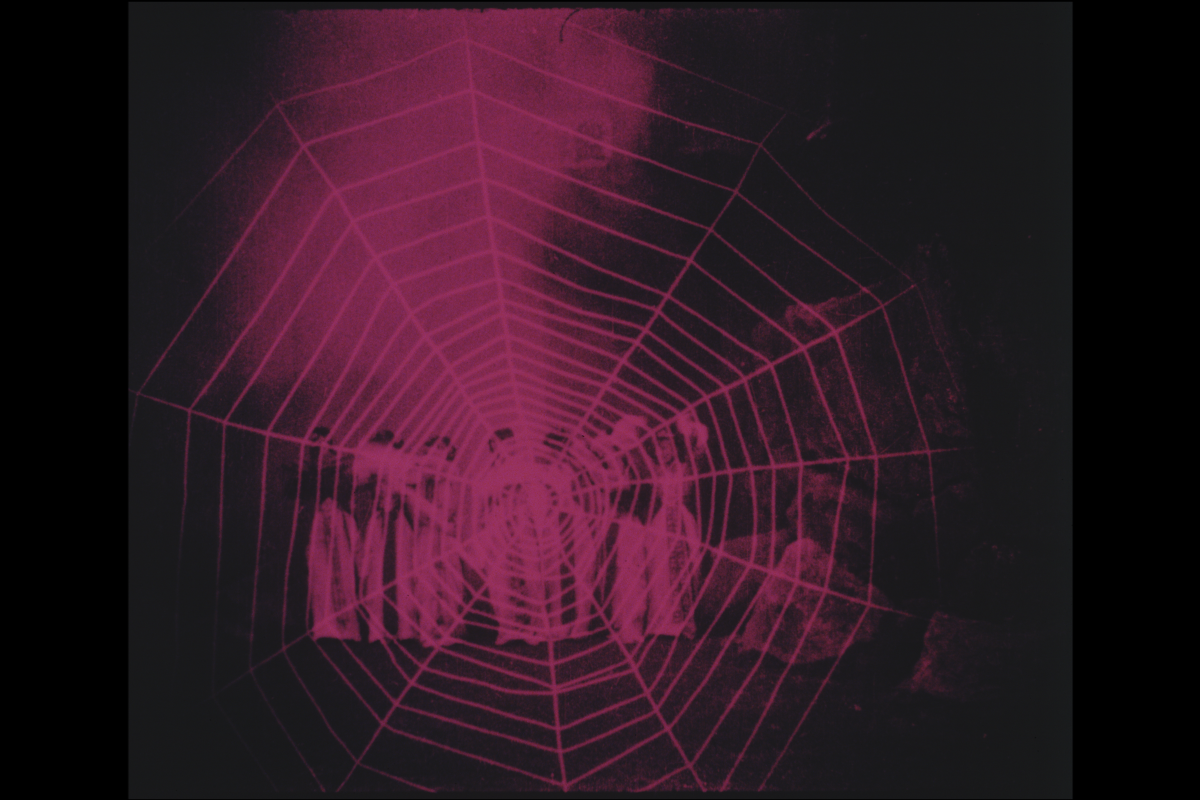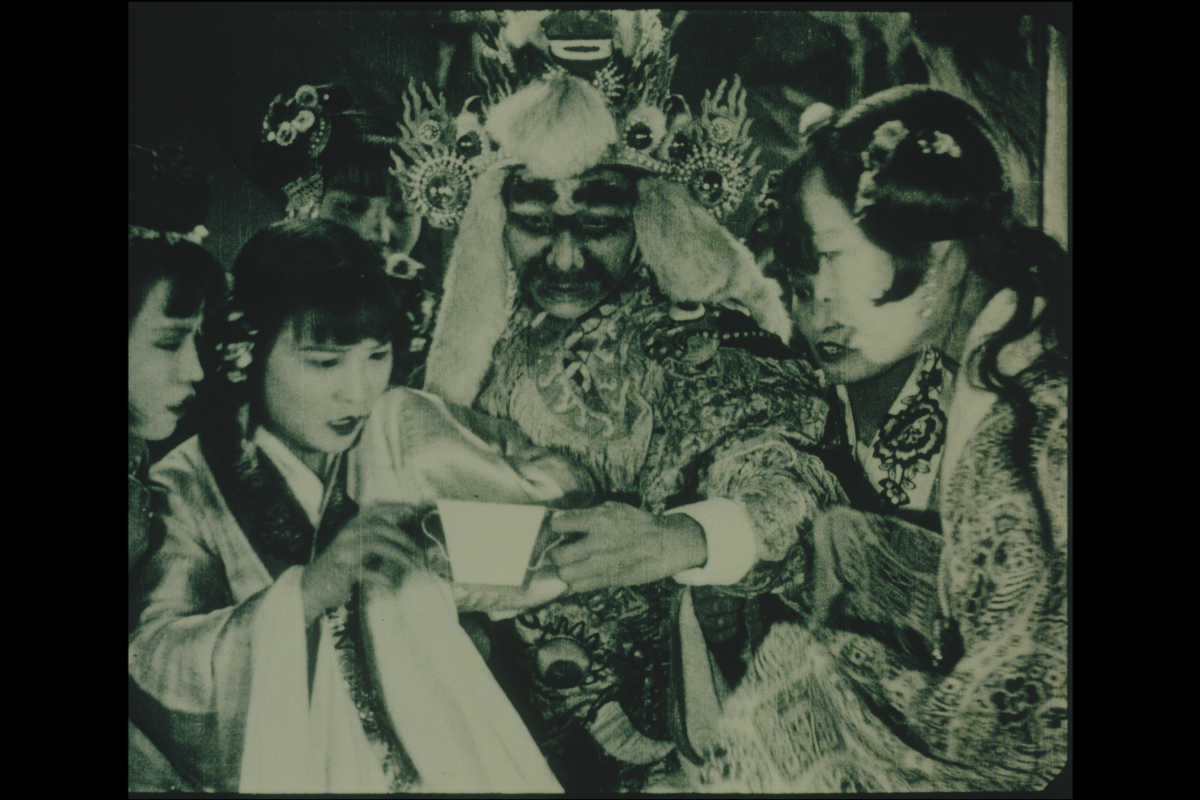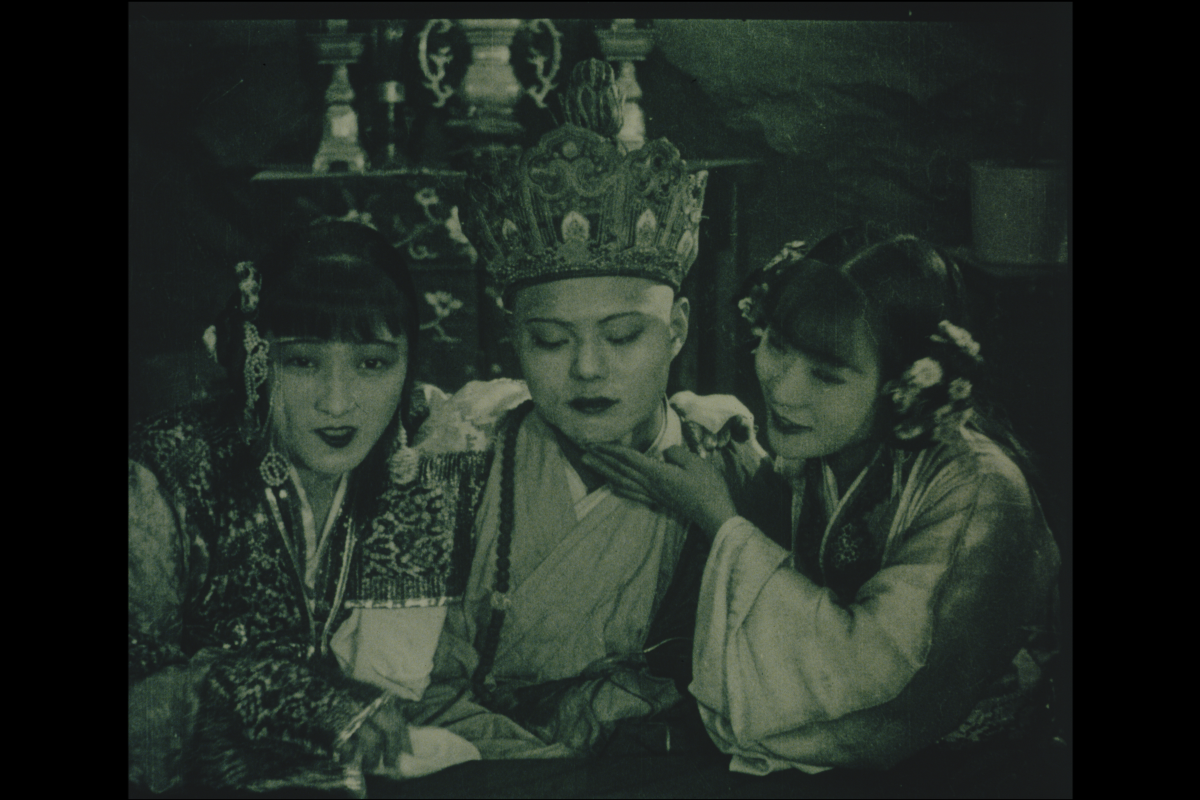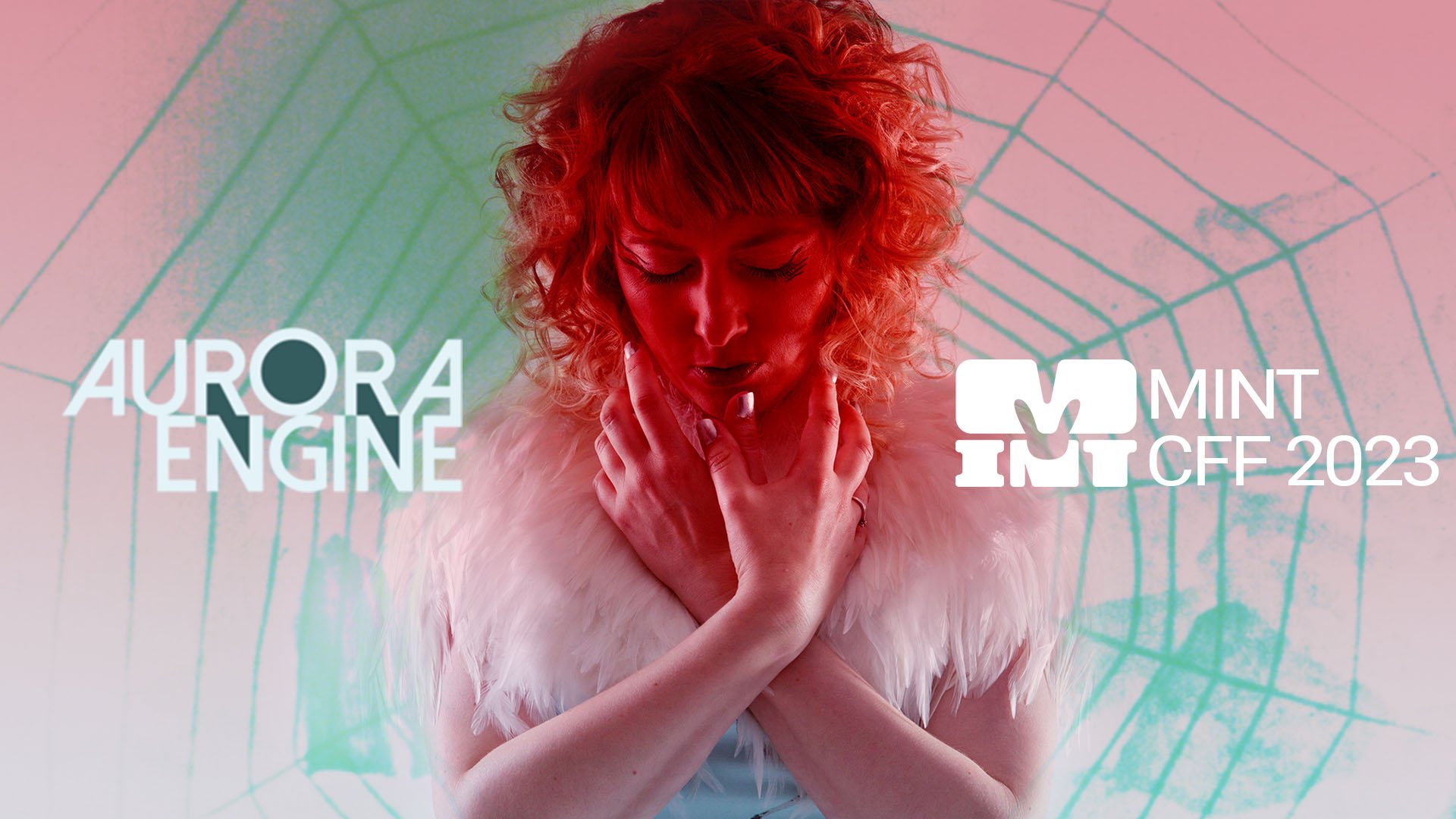
Pan Si Dong
Opening Gala
About the Openning Gala
Not only do we have a drink reception for MINT festival-goers, but we are also to have Dr Xuelei Huang from the University of Edinburgh introducing the opening film, Pan Si Dong(1927), a fantasy film produced by Shanghai Film Studio. An experimental live music performance and electronic mix by Aurora Engine will score for this early silent film, bringing the audience a surreal sensory experience that blends East and West. Further, we connect Tina Anckarman from the National Library of Norway to deliver a post-screening for a live Q&A session. This creative curatorial programme was first shown at Dundee Contemporary Arts, which is co-curated by Lin Yixiang, Zhu Zhaoyu and Kirsty Sinclair Dootson.
Film Synopsis:
The story of Pan Si Dong is based on the classic Chinese novel Journey to the West by Ming Dynasty writer Chengen Wu and is based on the 72nd episode of Pan Si Dong, which tells the story of the soft-hearted Monk Xuan Zang who is tricked into entering the cave by a group of spider spirits pretending to be beautiful women and is almost forced to marry the cave owner. The film produced by Shanghai Theatre Studio is an ancient mythological silent film and is seen as a precious treasure in Chinese cinema history. Once banned from screening in 1930 and subsequently lost, the hunt for a copy of the film has been a mysterious one. It was fortunately preserved by the Norwegian National Library as it premiered in a Norwegian cinema. The film footage of Pan Si Cave was discovered in 2011 and restored in 2014, allowing a new generation of curatorial talent to explore and reinvent China's film heritage.
Curators' Note:
In addition to depicting the adventures of Xuanzang and his apprentices, who fall into the cave of spiders, the film also provides a pioneering portrayal of marriage in feudal society through exchanging gender roles in relations. In my interpretation of the plot, I believe that the subject of the "bride kidnapping" changing from a "noble lady" to a "monk" satirises the oppressive social situation of women in the marriage system of the time. I hope that the experimental music score by a female musician will spark new thoughts in the audience about the hidden messages conveyed in moving images. - Yixiang Shirley Lin
The survival of this rare print is made even more remarkable by the fact that it retains its colours, which would have originally been achieved by dipping the filmstrip in tanks of dye (a process known as 'tinting'). This was a common practice in films of the silent era, used to achieve different atmospheric effects and often indicating changes in lighting conditions, whether a shift from day to night, inside to outside, or sunlight to candlelight. - Kirsty Sinclair Dootson
Musician's Notes:
Pan Si Dong 盤絲洞 ‘Cave of the Silken Web
I wanted to create a score in which the traditional was firmly present, yet juxtaposed with the sometimes ethereal, sometimes jarring sounds of synthesised and electronically manipulated music. Blending these sounds with harp, piano, voice and also a selection of Chinese instruments, I aimed to create a magical work reflecting the literary folklore themes of the film whilst responding to the spellbinding colour changes.Thank you to Zhuowei Li (Yangqin), Yijing Zhao (Pipa), and Anrun Zhao (Guzheng) for donating time and recordings to this project,
I particularly wanted to address the theme of consent present in the film. Unusually in this story, it is a man who is at the receiving end of drink spiking and forced marriage, themes ever present in today’s society where females are largely the victims.
Although gender roles are reversed in some aspects of the film, I noticed that the viewpoint very much reflects the male gaze. The male figures, despite playing smaller parts are also responsible for much of the violence in the film. I wanted to reflect this in the audio and drew upon research I have been making into the gendering of voice in children’s computer games. Many apps aimed at girls are based on caring and grooming, whilst those for boys contain themes of destruction and violence. Male voices are often strong, loud and confident, whilst female voices are childlike, soft and giggly.
If you have any questions about the score please feel free to email auroraenginemusic@gmail.com —Aurora Engine
About the performer:
Aurora Engine/Deborah Shaw is a harpist, pianist, vocalist, and composer based in Scotland. Her trademark sound blends real instruments with electroacoustic techniques. As a multi-instrumentalist, Shaw combines traditional and extended instrumental techniques weaving acoustic work with music technology creating ethereal and experimental sounds. Deborah has composed for film and TV and screen and is currently the Composer in Residence for Earth In Common, an environmental organisation responding to the climate crisis and exploring nature through the arts. You can read more about her work here.
